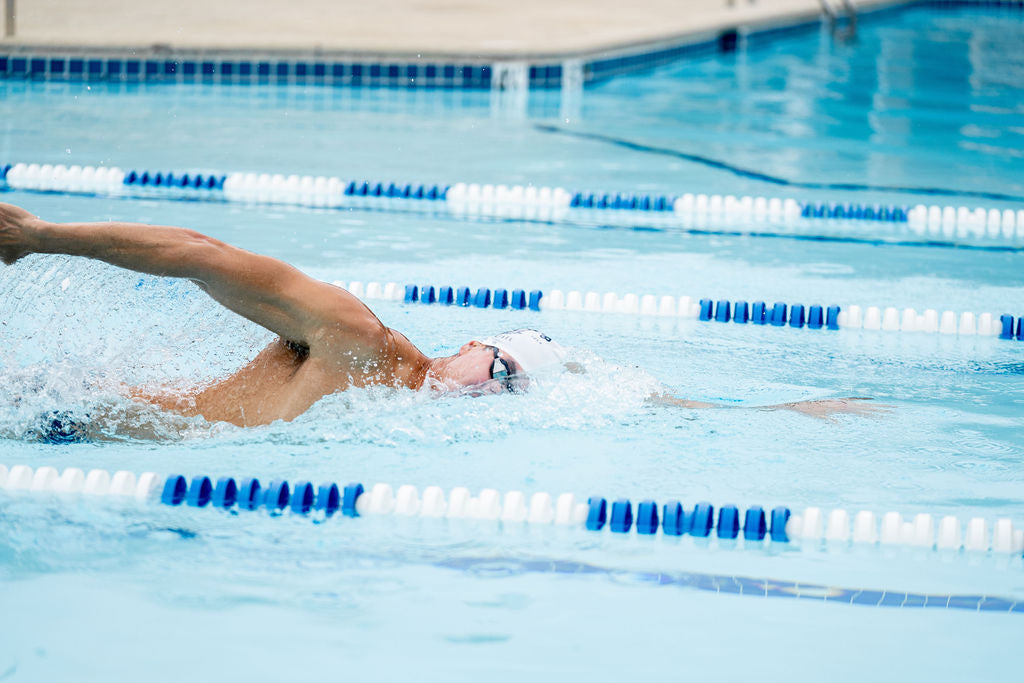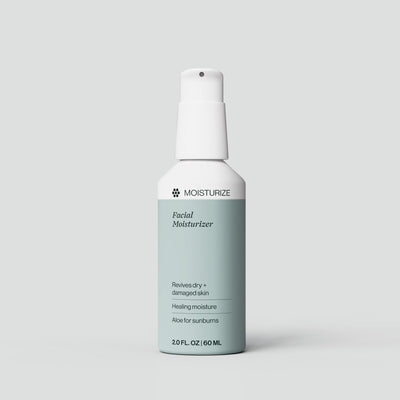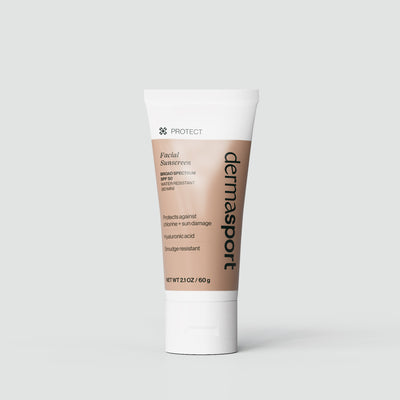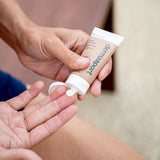Whether you're a lifelong swimmer or just getting into this wonderful sport, one thing is certain: you will get dry skin. The seemingly paradoxical phenomenon of experiencing dry skin after being submerged in water might leave you scratching your head. Let's unravel the mystery behind this common occurrence and take a look at the science behind skin dehydration.
Does chlorine actually dry out the skin?
Yes! Chlorine is essential for maintaining the hygiene of swimming pools; however, it can strip the natural oils from your skin. These oils play a pivotal role in retaining moisture, acting as a barrier against water loss. When chlorine interacts with the oils on your skin, it can disrupt this delicate balance, leading to irritation and dryness.
Does the skin dry out more the longer you spend in the pool?
Yes, again! Spending 30-90 minutes in the water can be a major factor in post-swimming dry skin. Prolonged exposure to water can lead to the removal of your skin's protective lipids, making it more susceptible to moisture loss. Additionally, water itself might contain impurities that contribute to skin irritation and dryness.
Why does my skin feel so dry and irritated after a swim meet?
Alternating between the cool water and the hot sun can also wreak havoc on your skin. The sudden temperature changes can cause blood vessels to constrict and dilate rapidly, potentially compromising the skin's natural barrier function. This can result in transepidermal water loss, leaving your skin feeling dry, tight, and itchy.
What can I do to treat dry skin after swimming?
The simple act of rinsing off after swimming can make a significant difference. Showering helps remove any residual chlorine and pool chemicals that might be lingering on your skin. Follow up with a good moisturizer to replenish the lost oils and lock in hydration. Opt for products with ingredients like hyaluronic acid, glycerin, and ceramides to provide an effective moisture barrier.
What should a swimmer do before getting in the water to prevent or mitigate dry skin?
Use a water-resistant, reef-safe sunscreen as a frontline defense against chlorine's drying impact. A good sunscreen for swimmers is Dermasport's SPF 50 Facial Sunscreen because it creates a hydrophobic barrier that repels chlorinated water.
Always make sure to keep your skin hydrated because well hydrated skin offers better protection than dry skin against environmental aggressors.
The combination of chlorine exposure, extended water immersion, and temperature fluctuations contributes to the occurrence of dry skin after swimming. To combat this issue, practicing proper skincare habits like (sunscreen use), showering off after swimming and using moisturizers can help restore your skin's natural balance. So, the next time you take a dip, you'll be armed with the knowledge to keep your skin smooth and hydrated.





